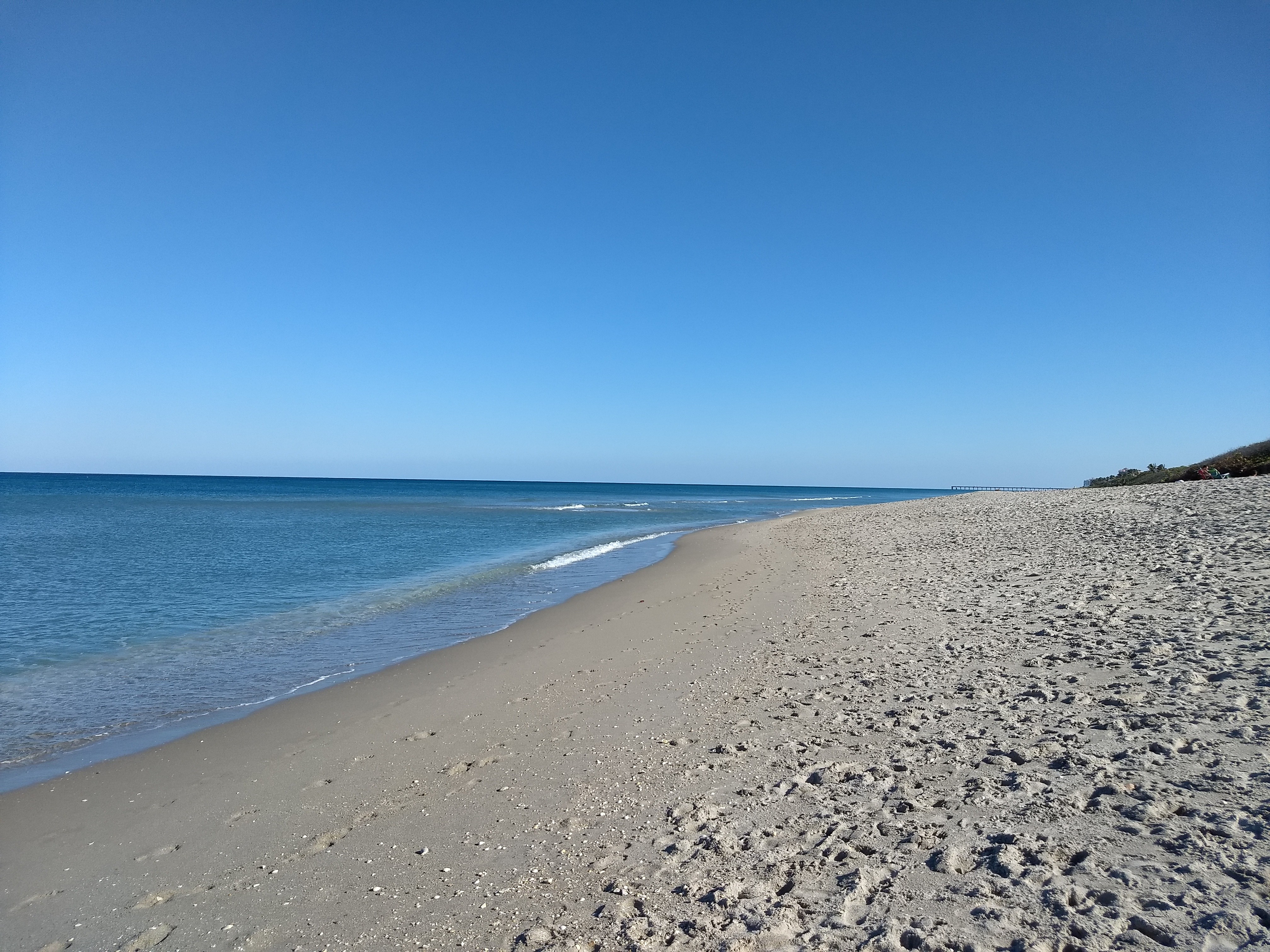Jesus, Streams of Living Water
Adult Devotional

Whoever believes in me, as the Scripture has said, streams of living water will flow from within
him (John 7:38).
I live about one mile, as the crow flies, from the beach. The Intracoastal Waterway separates the mainland from the barrier island beaches, which means I must go over a bridge to get there. I love riding my bicycle to the beach. I can reach the top of the closest bridge in twelve
minutes, yes, I've timed it. The vantage point at the top of that high span bridge is
spectacular. (I live in Paradise!) From there it takes about another seven minutes to reach the beach.
This past weekend I biked to the beach. As usual, I stopped at the top of the bridge to take in the view of the waterway and ocean, to rest and drink some water, and pray. (The top of the bridge is the closest thing to a mountaintop in south Florida!) It was a beautiful sunny day. Dozens of boats cruised up and down the Intracoastal Waterway,
and hundreds of people were swimming. I wondered, though, why they would choose to swim in brown, murky, gasoline-polluted water, when just a few
more blocks east they could be swimming in clear, sapphire-colored ocean water.
I thought, isn't this a picture of our lives, how we're often prone to choose the dark, murkiness of sin, over the living water that Jesus
offers us?
Jesus spoke today's Bible verse on the last day of the Feast of
Tabernacles, a joyous, seven-day celebration.
This festival is a reminder of how the Jewish people, after being delivered from slavery in Egypt, traveled to the Promised Land and lived in sukkot, a Hebrew word meaning booths, tents, or
tabernacles*. During the feast, daily sacrifices were offered to God, with the first and the last day of the feast set aside as a special time of rest and worship. Then on the eighth day, after the feast, they were to observe a special Sabbath day.
A custom that developed at least one hundred years before Jesus was born, was a water pouring ceremony that followed the daily sacrifices. The High Priest would carry a pitcher of water from the Pool of Siloam up to the temple mount and pour it into a silver basin that drained into the bottom of the sacrificial altar. According to Jewish tradition, the Pool of Siloam held prophetic meaning. It was associated with the giving of
God's Spirit, "For I will pour water on the thirsty land, and streams on the dry ground; I will pour out my Spirit on your offspring, and my blessing on your
descendants" (Isaiah 44:3).
It was during this very water pouring ceremony that Jesus stood up and cried out,
"Whoever believes in me, as the Scripture has said, streams of living water will flow from within
him" (John 7:38).
Jesus was referring to the Hebrew Scriptures and the words of the
prophets when he said, "streams of living water will flow." Where do we find
references to "living water" in the Old Testament; what passages did he have in mind? (This is an important question to
ask ourselves concerning all of Jesus' life and words.) Consider the
following:
But my people have exchanged their Glory
for worthless idols. . . .
My people have committed two sins:
They have forsaken me,
the spring of living water,
and have dug their own cisterns,
broken cisterns that cannot hold water (Jeremiah 2:11-13).
O LORD, the hope of Israel,
all who forsake you will be put to shame.
Those who turn away from you will be written in the dust
because they have forsaken the LORD,
the spring of living water.
Heal me, O LORD, and I will be healed;
save me and I will be saved,
for you are the one I praise (Jeremiah 17:13-14).
On that day living water will flow out from Jerusalem, half to the eastern sea and half to the western sea, in summer and in winter. The LORD will be king over the whole earth. On that day there will be one LORD, and his name the only
name (Zechariah 14:8-9).
The people listening to Jesus that day in the temple courts, and particularly the chief priests and Pharisees, were well aware of the Scriptures to which Jesus referred. They understood he was staking his claim to deity, which is why the Pharisees and chief priests sought to arrest him (Mt. 26:4; Jn. 7:32; Jn. 18:36). Despite their unbelief,
many others upon hearing Jesus' proclamation chose to place their faith in him (Jn. 7:31, 41). They believed Jesus was the promised Messiah,
the Living Water spoken of in Scripture!
Prayer: "Dear Jesus, help me to reject the dark, murky water of sin that separates me from God, who is
holy; and choose you, the Living Water. Please, Holy Spirit, wash over me. Grant me life, healing, and salvation.
You alone are worthy to be praised. Amen."
Copyright 2012 S.A. Keith
SundaySchoolNetwork.com - All rights reserved
*It is believed by some that Jesus was born on (or during) the Feast of
Tabernacles, in the Fall as opposed to December 25. If true, this would be
consistent with John 1:14, which tells us that Jesus became flesh and lived,
dwelt, or "tabernacled" among us. Learn
more about the Feasts of Israel.
Help keep the site going, support our site!
Subscribe to our Newsletter - Learn More
